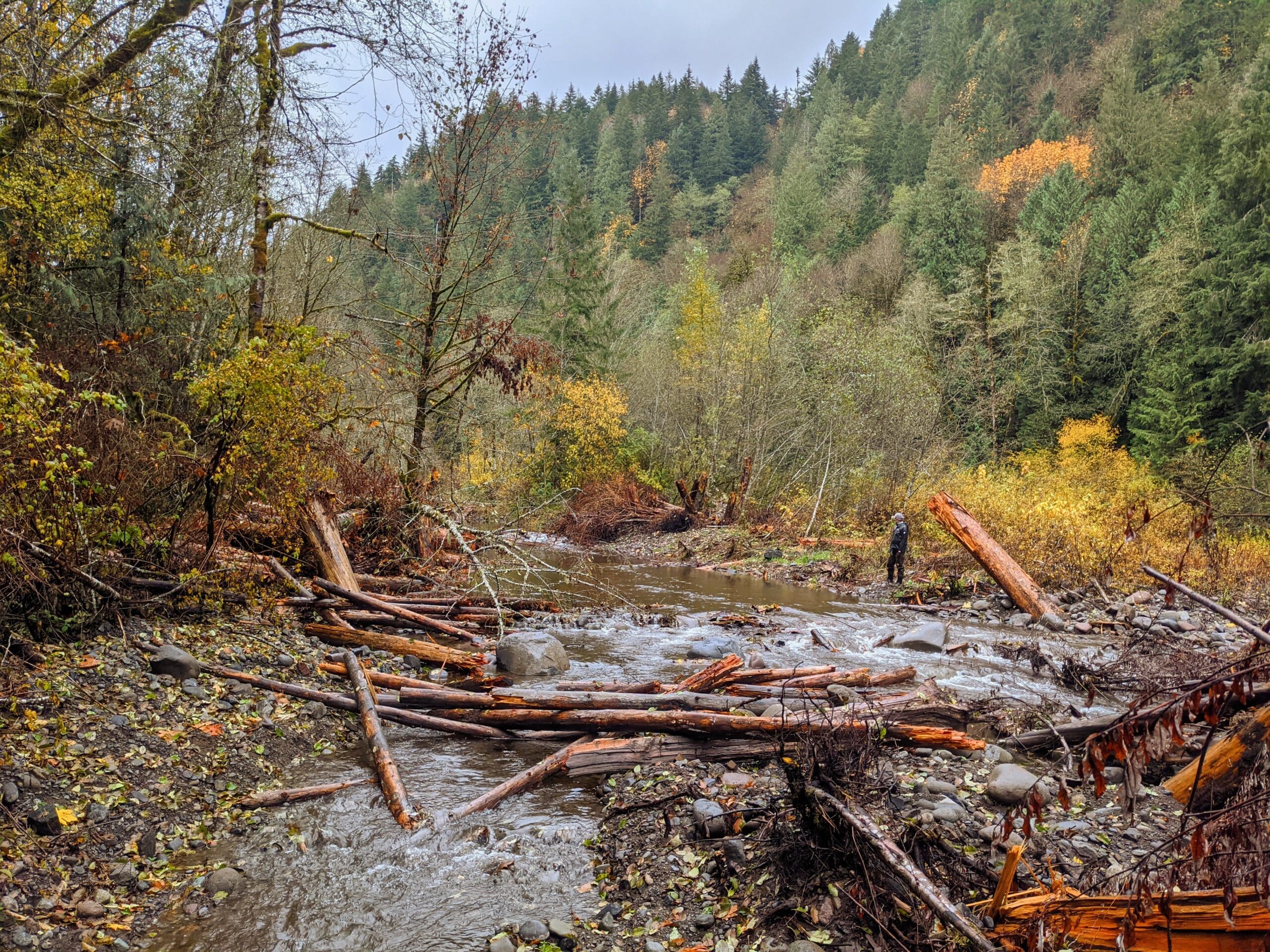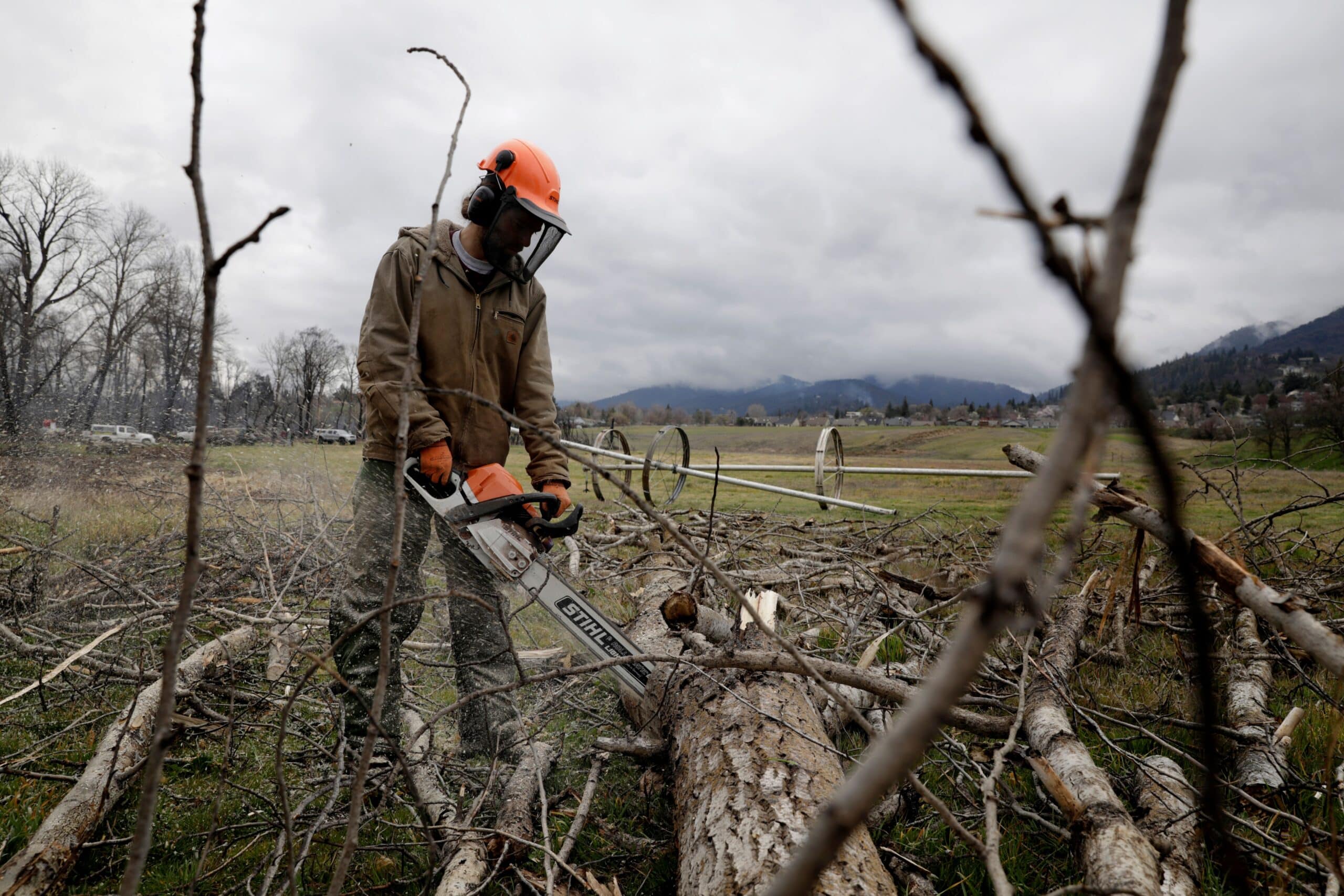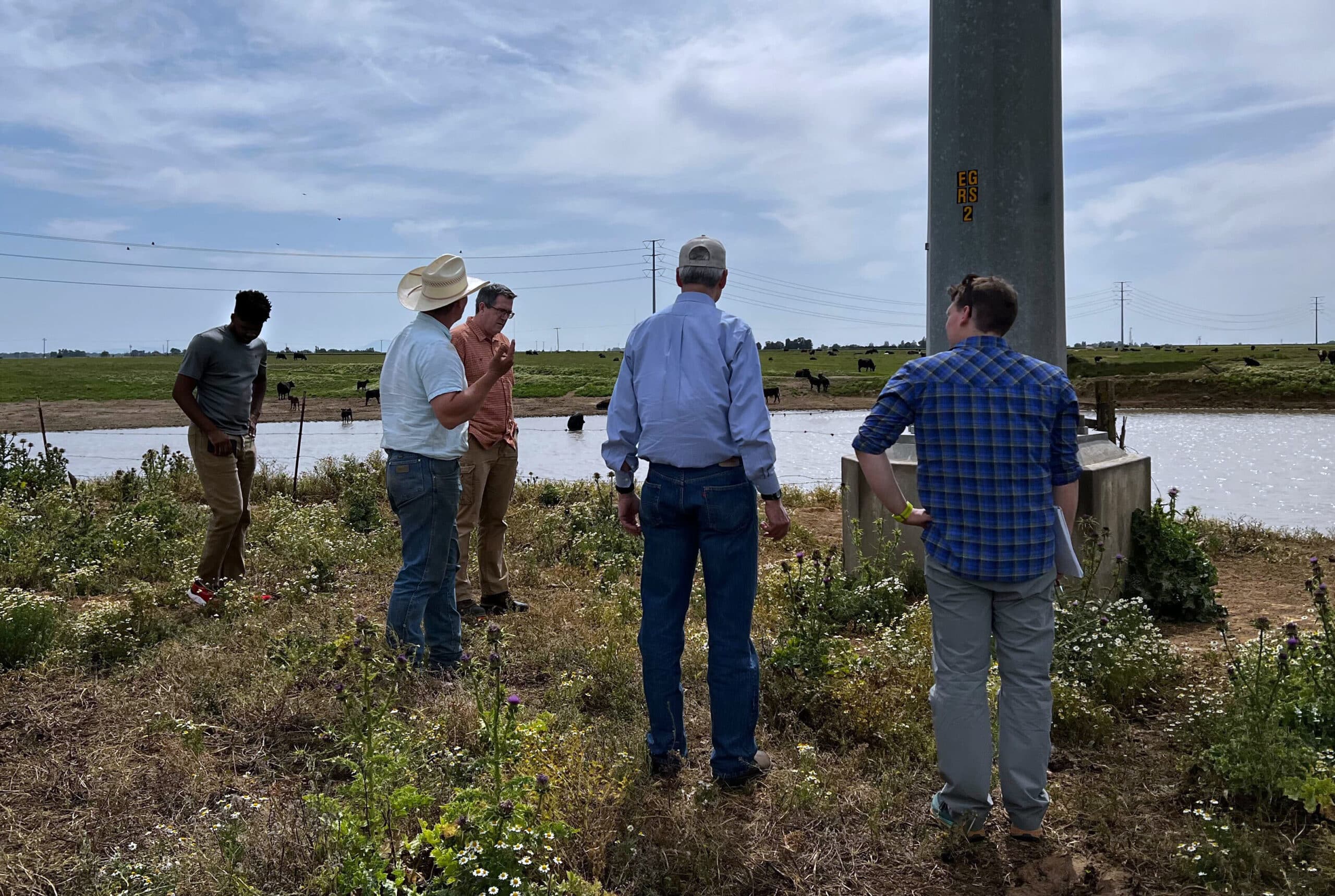On-the-Ground Action – Made Possible By You
At TFT, spring and summer are all-hands-on-deck, on-the-ground-action seasons.
We steward existing projects and break ground on new ones. Monitoring staff wade through rivers and forests collecting crucial data. Contractors fly in large wood by helicopter, plant new native plants, and place spawning gravel by the ton to improve fish habitat. Local staff meet with landowners, fostering lasting partnerships yielding tangible benefits for water quality and quantity.
We see all of these projects as vibrant, invaluable laboratories. These projects are proving that TFT’s systems-changing approach to river restoration is real and that it is possible to achieve resilience for entire watersheds within our lifetimes.
As the season ramps up, we sat down with our busy implementation staff to hear more about their recent work and what they’re excited about in the upcoming months. We’re proud to share these updates with the supporters who made them possible.
Upper Willamette Basin

Restoration site to re-establish native forest along the McKenzie after wildfire
With our partners at the McKenzie Watershed Council, we just planted our fifth riparian reforestation project in the upper Willamette basin. This one is special. It not only ensures that diverse native forest is reestablished along a reach of the McKenzie River—crucial habitat to many aquatic species—but it also recovers forest burned by the 2020 Holiday Farm wildfire. Many more riparian reforestation projects are planned in the McKenzie and Middle and Coast Fork Willamette subbasins. This year, we’re launching our new restoration program with the Metropolitan Wastewater Management Commission (MWMC) and other local partners.
Sandy River Basin

New side channel opened, thanks to our work in the Sandy River basin
This summer, we are continuing work on the Salmon, Zigzag, and Boulder Creek. The Zigzag River was heavily channelized after the 1964 flood and has little to no floodplain connectivity outside of what we’ve restored. Currently, the flow is compressed and acts like a firehose, clearing out spawning gravel and any natural wood in the channel. We’ll be removing old Army Corps berms, reintroducing flow to historic side channels, and installing large wood structures throughout the project. By restoring roughness elements to the Zigzag, water will be broken up and spread out onto the floodplain, creating much-needed spawning and juvenile rearing habitat.
Rogue River Basin

At another project site burned in the Almeda Fire, two local contractors, Fire Safe Landscape LLC and M&M Services, cleared invasive plants and scorched snags (standing, dead trees) that posed a fire threat.
This spring, TFT and local partners planted four new sites in the Rogue basin, making it our busiest season in a decade. TFT implemented more work this spring in the basin than in the last two years combined. One of the sites planted in partnership with the City of Ashland and Lomakatsi Restoration Project was located at the ignition point of the Almeda Fire in 2020. The riparian forest had been choked with invasive blackberry and other weeds, which helped carry the fire down the Bear Creek Greenway into several other cities. Today, thanks to replanting native species, which we know burn slower and help prevent wildfires from spreading, this landscape is more resilient.
At another project site burned in the Almeda Fire, two local contractors, Fire Safe Landscape LLC and M&M Services, cleared invasive plants and scorched snags (standing, dead trees) that posed a fire threat. The site now hosts nearly 8,000 native trees and shrubs. It will be fostered over the next 20 years to encourage the regrowth of a dense riparian forest.
These projects seized a narrow window of opportunity to re-envision the freshwater system while natural, post-fire regeneration was beginning to emerge. Seeing our partners come together to get this work done quickly was a reminder of the power of collaborative effort. The summer will be spent monitoring and stewarding the nearly three dozen projects across the basin and recruiting landowners for new projects to be implemented this fall.
Sacramento San-Joaquin Basin

TFT staff discuss recycled water storage options with Sacramento Valley landowners.
On behalf of Sacramento Regional County Sanitation District’s Harvest Water Program, TFT is conducting landowner outreach to more than 55 landowners who are interested in receiving recycled water for irrigation. As part of that effort, this spring, we began working with some landowners and farmers on evaluations of groundwater wells. In preparation for Harvest Water’s future delivery of recycled water for irrigation, we are helping to establish a groundwater elevation monitoring network. Changes in groundwater levels and aquifer conditions from the replacement of groundwater will be tracked through existing wells and by adding new wells where needed. In addition to groundwater elevations, TFT is establishing transects to monitor the riparian and wetland ecological benefits of Harvest Water over time.
May 26, 2022#riparian restoration #river restoration
Enjoying Streamside?
This is a space of insight and commentary on how people, business, data and technology shape and impact the world of water. Subscribe and stay up-to-date.
Subscribe- Year in Review: 2023 Highlights
By Ben Wyatt - Report: Leveraging Analytics & Funding for Restoration
By Joe Whitworth - Report: Transparency & Transformational Change
By Joe Whitworth - On-the-Ground Action – Made Possible By You
By Haley Walker - A Report Representing Momentum
By Joe Whitworth

